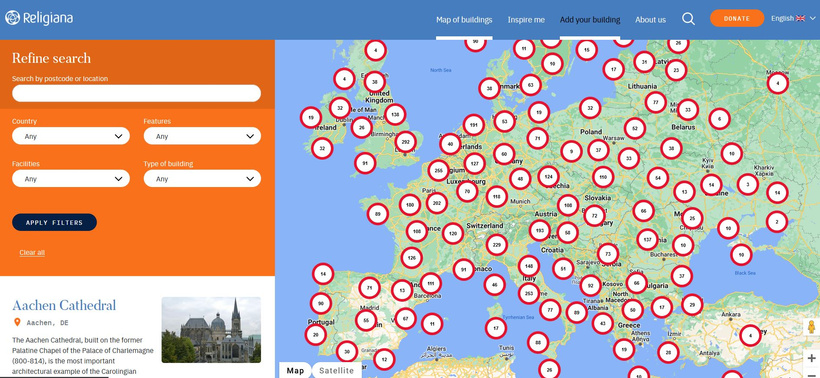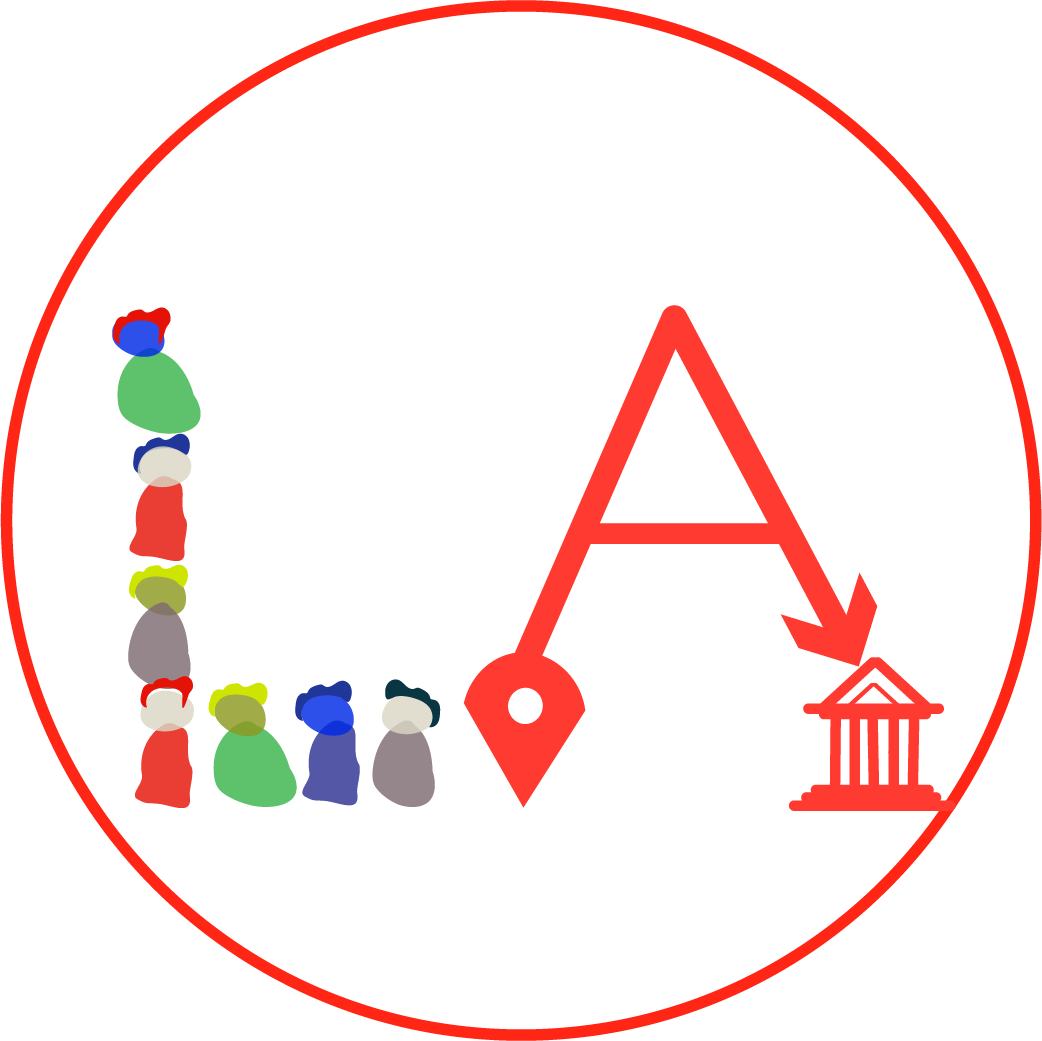Religiana is a Future for Religious Heritage project promoting European religious heritage and offering practical information for visitors. Religiana features a map of buildings across Europe and multiple selections of places under categories such as “Religious buildings that can be visited virtually“.
Religious heritage encompasses places and items related to religious practices. Religious heritage is often a fundamental piece of cultural identity worldwide, outside of belief or worship. Religious heritage often is an integral part of local communities supporting its promotion and conservation. Furthermore, within the religious context, heritage assets exhibit the most exquisite craftsmanship and offer insights and connections with our ancestors. In Europe, Religiana proposes 500,000 places “churches, chapels, synagogues, mosques, cathedral, monasteries, convents” and thousands of objects related.
The Religiana platform hosts an interactive map of religious buildings in Europe. The map showcases the importance and multitude of religious heritage in the region. By exploring the map the visitor can find information about the sites and plan their visits with ease. Moreover, people can register their buildings on the platform helping local actors to promote and safeguard their heritage.

© Religiana
Future for Religious Heritage, founded in 2008, is a non-profit, non-religious, Pan European Network of heritage connections aiming to offer European citizens access to culture and heritage in Europe. They host activities, and events and offer educational outputs, as well as, projects such as SKIVRE ‘Skills Development for the Valorisation of European Religious Heritage’, Europetour improving qualifications of cultural heritage actors, and ALTERheritage with seminars creating vocational learning for religious heritage conservation and management.
Our take
The Religiana project is a fantastic resource for religious heritage promotion, making it accessible and informative for visitors. The project sets an example for local communities to get involved and promote their heritage, creating connections with existing institutions in Europe with the Future for Religious Heritage organisation’s practices.
I want to learn more:

